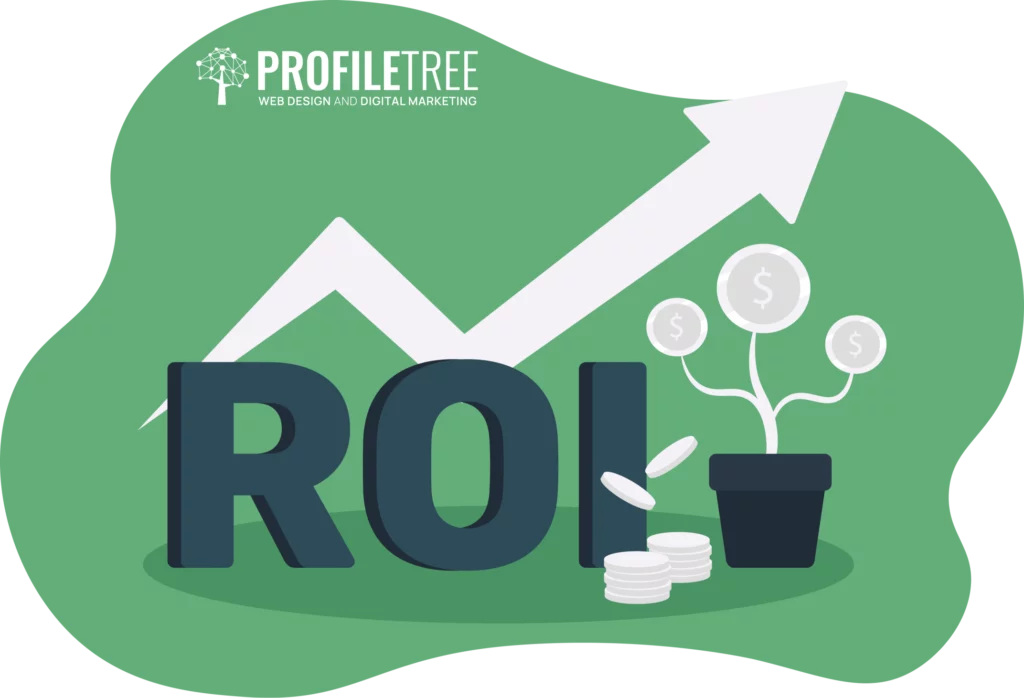The business coaching industry is flourishing, offering unparalleled support and guidance to entrepreneurs and aspiring leaders. Let’s delve into the numbers and get a clear picture of its current state in 2024.
What Is the Current Market Size of the Business Coaching Industry?

Table of Contents
Coaching industry? More like a rocket ship! This dynamic arena isn’t just surviving; it’s thriving, with a projected growth rate of 15.43% between 2023 and 2024. Talk about skyrocketing! This sizzling growth reflects the skyrocketing demand for coaches who fuel business success.
What is the current market size of the business coaching industry? Buckle up, entrepreneurs! Get ready for a billion-dollar surprise: the global business coaching market boasts a whopping $5.34 billion size in 2023. That’s not just impressive; it’s evidence of a coaching boom sweeping across the globe.
Coaching industry? More like a rocket ship! This dynamic arena isn’t just surviving; it’s thriving, with a projected growth rate of 15.43% between 2023 and 2024. Talk about skyrocketing! This sizzling growth reflects the skyrocketing demand for coaches who fuel business success.
Market size? Let’s break it down! Think 126,050+ active coaches globally, all guiding ambitious individuals and businesses. And it’s not just passion fueling their fire: the average hourly rate for these coaching wizards is $244, showcasing the expertise and value they bring.

But wait, there’s more! The US takes the gold medal in the coaching Olympics, generating a staggering $14.1 billion in revenue in 2023. Now, that’s an empire built on empowering leaders and businesses!
Numbers tell a story, but here’s the real magic: this industry isn’t just about profits; it’s about people. Coaching unlocks human potential, crushes challenges, and propels goals into overdrive. It’s leadership development, team synergy, and organizational growth, all wrapped up in one transformative experience.
So, what does the future hold? Get ready for an even steeper climb! Corporate investments are pouring in, awareness is multiplying, and coaching methodologies are constantly evolving. This industry is a rocket ship with no fuel shortage, and skilled coaches are in high demand.
Market Size of the Business Coaching Industry
- Globally, the coaching industry boasts a staggering $5.34 billion market size in 2023, showcasing its significant economic footprint.
- The United States dominates the market, generating an impressive $14.1 billion in revenue, highlighting the strong demand for coaching services in mature economies.
Coaching Industry Statistics
- The number of active coaches has skyrocketed, with an estimated 126,050+ coaches around the world in 2023, indicating a growing pool of talented professionals.
- Coaches command respect and value, evidenced by the average hourly rate of $244, reflecting their expertise and guidance.
- Businesses recognize the ROI of coaching, with one-third of all Fortune 500 companies utilizing executive coaching, demonstrating its effectiveness in leadership development.
Global Coaching Industry
- The global coaching market is experiencing an exciting growth rate of 15.43% between 2023 and 2024, illustrating its rapid expansion and future potential.
- The demand for coaching transcends borders, with countries like China, India, and Brazil showcasing remarkable growth, marking the emergence of new hubs for this dynamic industry.
Growth Rate
The business coaching industry isn’t just holding its own; it’s sprinting towards the finish line – and leaving other industries in its dust. Brace yourself for a number that’ll make your eyebrows do a synchronized dance: the global business coaching industry is projected to grow at a blistering 15.43% between 2023 and 2024. Boom, indeed!
But why this meteoric rise? Let’s unpack the rocket fuel propelling this growth:
Empowered Entrepreneurs
As entrepreneurial spirits ignite across the globe, the demand for guidance and expertise skyrockets. Business coaches provide the navigational tools and strategic frameworks for ambitious leaders to build, scale, and conquer their professional dreams.
Corporate Recognition
Bigwigs at Fortune 500 companies and startups alike are catching on to the ROI of coaching. Investing in leadership development, team dynamics, and strategic planning fueled by skilled coaches translates to higher productivity, enhanced innovation, and a healthier bottom line.
Evolving Landscape
The business world is a constant dance of change and disruption. Coaches play a crucial role in helping businesses adapt and thrive in this dynamic environment by fostering agility and resilience and embracing new technologies and methodologies.
Global Expansion
The coaching boom isn’t limited to the North American giants. Emerging markets like China, India, and Brazil are experiencing their own coaching revolutions fueled by an increasingly connected and ambitious workforce. This burgeoning demand adds even more fuel to the global growth engine.
Think of the growth rate as an invitation, an invitation to join a thriving industry that empowers individuals and propels businesses. Whether you’re a seasoned veteran or a fresh-faced entrepreneur, the coaching world has a role for you. So, strap in, buckle up, and prepare to ride the wave of this exciting economic phenomenon. The future of business coaching is bright – and it’s growing faster than you can say “synergy.”
How Does the ROI of the Coaching Industry Benefit Businesses?

Investing in your employees is one of the smartest things a business can do. And one of the best ways to invest in your employees is through coaching. Coaching can provide a significant return on investment (ROI) for businesses in a variety of ways.
ROI
ROI is a measure of the financial return on an investment. It is calculated by dividing the net profit from an investment by the cost of the investment. In the case of coaching, the cost of the investment would be the cost of the coaching program, and the net profit would be the increase in revenue or other benefits that the business experiences as a result of the coaching industry.
ROI of Coaching
The concept of ROI (Return on Investment) often conjures up images of financial spreadsheets and bottom lines. But when it comes to coaching, the ROI goes beyond simple numbers and paints a vivid picture of transformed people, thriving teams, and, ultimately, businesses soaring to new heights.
Quantifying the Value
Estimating the ROI of the business coaching industry can be tricky, as it encompasses intangible benefits alongside hard numbers. However, studies consistently show impressive returns:
- 3-5x ROI is the average expectation, meaning every dollar invested in coaching yields $3-5 in return.
- A Harvard Business Review study found coaching increased individual productivity by 22%.
- Gallup reports a 21% higher engagement rate and 27% higher profit margin in companies with strong coaching cultures.
There are many ways that the coaching industry can benefit businesses. Some of the most common benefits include:
- Increased productivity: Coaching can help employees develop new skills and improve their existing skills, which can lead to increased productivity.
- Improved employee engagement: Coaching can help employees feel more engaged in their work, which can lead to lower turnover and absenteeism.
- Enhanced leadership skills: Coaching can help managers and executives develop their leadership skills, which can lead to a more effective and efficient organization.
- Improved communication: Coaching can help employees communicate more effectively with each other, which can lead to fewer misunderstandings and conflicts.
- Greater innovation: Coaching can help employees to think more creatively and to come up with new ideas, which can lead to greater innovation.
Expected to Grow
The ROI of the business coaching industry is expected to grow in the coming years. This is due to a number of factors, including the increasing demand for skilled workers, the rising cost of employee turnover, and the growing recognition of the value of coaching.
A Strong ROI
The ROI of the business coaching industry can be significant. In fact, some studies have shown that businesses can expect to see a return of 3-5 times their investment in coaching. This means that for every dollar a business invests in coaching, it can expect to see a return of $3-5.

What Are the Important Coaching Industry Statistics for 2024?
In 2023, important coaching statistics to track include client satisfaction rates, retention rates, and the effectiveness of coaching interventions. It will also be crucial to monitor the diversity and inclusion efforts within the coaching industry, as well as the impact of virtual and remote coaching on client outcomes.
Additionally, tracking the adoption of new coaching technologies and methodologies will be essential for coaches to stay competitive in the evolving landscape.
- Global Market: $5.34 billion (expected to grow at 15.43% in 2024)
- US Market: $14.1 billion (largest market globally)
- Number of Active Coaches: 126,050+ (worldwide)
- Average Hourly Rate: $244 (demonstrating the value of coaching services)
Impact and ROI
- 68% of individuals who hired coaches believe they made back their investment.
- 73% of coaching clients say that coaching helps them improve relationships, communication skills, and interpersonal skills.
- 70% of coachees improve work performance, communication, and relationships thanks to coaching.
- 51% of companies with strong coaching cultures have higher revenues than other companies in their industry.
Top Coaching Statistics
- Executive coaching has a reported ROI of 500%.
- One-third of Fortune 500 companies utilize executive coaching.
- There is a growing demand for coaching in emerging markets like China, India, and Brazil.
- 75% of coaching clients say that the value they get from executive and leadership coaching is “considerably greater” or “far greater” than the money and time invested.
- 13% of people who hire coaches think that improving their self-esteem and confidence are the most important reasons for hiring a coach.
How Does The Coaching Industry Contribute to the Success of Small Businesses?
Coaching contributes to the success of small businesses by providing valuable guidance and support. A life coach can help small business owners identify their goals, overcome challenges, and develop effective strategies for growth. Coaching services can also improve communication and leadership skills, enhance employee performance, and increase overall productivity.
With the help of a coach, small business owners can gain clarity, confidence, and motivation to achieve their business objectives.
Coaching plays a pivotal role in the success of small businesses, acting as a launchpad for growth and a shield against common pitfalls. Here’s how:
1. Clarity and Goal Setting
Small businesses often struggle with defining clear goals and actionable plans. Coaches act as sounding boards, helping clients identify their vision, set SMART goals, and break them down into achievable steps. This leads to a focused and strategic approach, maximizing the chances of success.
2. Overcoming Challenges
Starting and running a small business is fraught with challenges. Coaches provide invaluable support, acting as confidantes and problem-solvers. They help clients navigate obstacles, develop new strategies, and foster resilience in the face of adversity. This can mean the difference between overcoming a hurdle and succumbing to defeat.
3. Skills Development
Coaches aren’t just cheerleaders. They’re skill-builders. They identify personal and professional development areas for their clients, whether it’s leadership, communication, time management, or financial planning. Through tailored coaching techniques and training, clients gain the skills needed to effectively lead their businesses.
4. Increased Accountability
Running a small business can be a lonely journey. Coaches provide much-needed accountability, keeping clients on track with their goals and challenging them to push beyond their comfort zones. This constant feedback loop ensures progress and prevents stagnation, propelling the business forward.
5. Enhanced Confidence and Motivation
The pressure of entrepreneurship can be daunting, leading to self-doubt and a lack of motivation. Coaches act as motivators, boosting clients’ confidence and reminding them of their strengths and capabilities. This renewed positivity translates into increased energy, perseverance, and a stronger belief in their success.
6. The Impact on Income
These benefits directly translate into financial success for small businesses. Improved leadership and skills drive growth, overcome obstacles, and increase efficiency, leading to higher revenue and profitability. Additionally, successful businesses attract more clients and opportunities, further boosting income.
Coaching Industry Income
- Hourly rate: This is the most common model, where coaches charge a set fee per hour of coaching. Depending on experience, expertise, and niche, rates can range from $100 to $500+ per hour.
- Package deals: Coaches offer pre-designed packages with a specific number of sessions and deliverables, providing greater value and recurring income. Packages can range from $1,000 to $10,000+, depending on the length and intensity of the program.
- Group coaching: This model involves coaching a group of small business owners at a discounted rate per participant. It can be a good way to reach a wider audience and generate consistent income streams. Group sessions can generate $100-$500 per participant, depending on the program and group size.
- Retainer agreements: Some coaches work with clients on a monthly retainer basis, providing ongoing support and access to their expertise. Retainers can range from $1,000 to $5,000+ per month.
- Success-based bonuses: This model involves aligning the coach’s income with the client’s success. Coaches may receive a percentage of the client’s increased revenue or profits above a set baseline.
Whether you’re a CEO or a dreamer, the message is clear: the business coaching industry is more than just a trend; it’s a revolution. Invest in its power, unlock your true potential, and watch your business soar to new heights.
Types of Business Coaching: Navigating the Options
The business coaching industry offers a diverse landscape of approaches and specialists, making it crucial to understand the nuances before choosing the right fit. Here’s a breakdown of key types of business coaching, methodologies, coaches, and how to select the best option for your specific needs:
Coaching Methodologies:
- Life Coaching: Focuses on overall personal and professional development, helping individuals set and achieve goals, improve self-awareness, and overcome limiting beliefs. Not solely business-centric, but beneficial for entrepreneurs and business owners seeking personal growth impacting their leadership.
- Executive Coaching: Targets high-level leaders and executives, addressing concerns like strategic thinking, decision-making, communication, and navigating corporate politics. Often uses goal-oriented and action-focused methods.
- Team Coaching: Aims to enhance team dynamics, communication, collaboration, and conflict resolution. Coaches facilitate discussions, identify bottlenecks, and guide teams towards shared goals.
- Business Coaching: This broader category encompasses various methodologies addressing specific business needs like sales coaching, marketing coaching, financial coaching, or operational coaching. It focuses on improving results in targeted areas.
Types of Coaches:
- Generalist Coaches: Possess a broad range of skills and experience across various business aspects. Suitable for businesses with diverse needs or unsure of their specific focus.
- Industry-Specific Coaches: Have deep expertise in specific industries like healthcare, technology, or finance. Ideal for businesses looking for targeted guidance within their niche.
- Certified Coaches: Have undergone rigorous training and hold certifications from recognized organizations. Demonstrates their commitment to best practices and ethical conduct.
- Non-Certified Coaches: Many effective coaches lack formal certification. Focus on their experience, testimonials, and alignment with your needs.
Choosing the Right Coach:
- Assess Your Needs: Clearly define your goals and challenges. Are you seeking leadership development, improved team dynamics, or growth in a specific area like sales?
- Do Your Research: Explore coach profiles, websites, and testimonials. Compare methodologies, industry expertise, and certification (if relevant).
- Schedule Consultations: Discuss your needs and expectations with potential coaches. Assess their communication style, understanding of your situation, and ability to connect with you.
- Consider Cost and Availability: Compare fees and package options, ensuring they align with your budget and desired coaching frequency.
The Future of Business Coaching: Embracing Change and Innovation
The business coaching industry is on an upward trajectory, fueled by growing market awareness, the need for agile leadership, and evolving workforce dynamics. But what does the future hold for this dynamic field?
Future Outlook:
- Continued Growth: Market reports predict consistent expansion, driven by increased demand from individuals and organizations seeking performance improvement, personal development, and navigating an ever-changing business landscape.
- Tech-Integrated Coaching: Technology will play a pivotal role, with AI-powered tools assisting coaches in data analysis, personalized feedback, and microlearning opportunities. Expect a blend of virtual and in-person coaching models.
- Niche Specialization: Coaches will continue to specialize in specific areas like emotional intelligence, diversity and inclusion, remote work leadership, and crisis management, catering to unique client needs.
- Focus on Measurable Outcomes: Data-driven approaches will gain prominence, with coaches demonstrating the quantifiable impact of their interventions on individual and organizational performance.
- Accessibility and Affordability: Increased competition and technology adoption will lead to more affordable and accessible coaching options, including micro-coaching and group coaching programs.
Challenges and Opportunities:
- Maintaining Ethical Standards: With the influx of new coaches, upholding high ethical standards and regulations will be critical to ensure industry credibility.
- Demonstrating ROI: Coaches need to effectively measure and communicate the value they bring to justify their investment. Data and client testimonials will play a crucial role.
- Adapting to Technology: Coaches need to embrace technology strategically, using it to enhance interactions and outcomes, not replace human connection.
- Reaching Underserved Markets: Expanding access to coaching for smaller businesses, diverse communities, and underrepresented groups presents a significant opportunity for growth and societal impact.
Evolution of Business Coaching:
- Personalized Learning: Expect individualized coaching journeys with AI-powered adaptive learning platforms and micro-coaching interventions.
- Coaching as a Continuous Process: Coaching will shift from one-off engagements to ongoing partnerships integrated into organizational culture.
- Focus on Well-being and Resilience: As mental health awareness increases, coaches will play a vital role in promoting well-being, building resilience, and managing stress in a demanding environment.
- Globalized Industry: With remote work becoming the norm, international collaboration and cross-cultural coaching expertise will be increasingly valuable.
By embracing these trends and proactively addressing challenges, business coaching can solidify its position as a vital investment in individual and organizational development, shaping a future of empowered leaders, thriving teams, and sustainable success.
FAQs:
Is business coaching right for me/my business?
Business coaching can be beneficial for individuals and businesses at various stages. It can help you improve leadership skills, overcome challenges, achieve specific goals, and boost overall performance. Consider your needs and goals to determine if it’s a good fit.
How much does business coaching cost?
Costs vary depending on the coach’s expertise, experience, location, and coaching format. Research options and budget accordingly.
What qualifications should I look for in a business coach?
Certifications can indicate commitment to best practices, but experience and alignment with your needs are crucial. Read testimonials, schedule consultations, and ask questions to find the right match.
How can I measure the success of business coaching?
Set clear goals upfront and track progress metrics like performance improvement, increased revenue, or client satisfaction surveys.
What are the benefits of business coaching?
Studies show increased revenue, improved leadership, better team dynamics, enhanced communication, and greater employee engagement.
Conclusion:
The business coaching industry is thriving, offering diverse approaches and specialists to address your unique needs. By understanding the different types of coaching, coaches available, and choosing the right fit, you can leverage this valuable investment to unlock your full potential and achieve your desired business goals.


